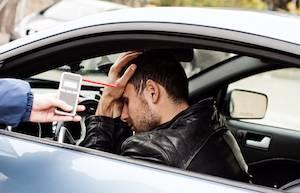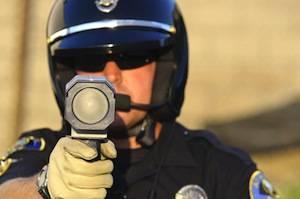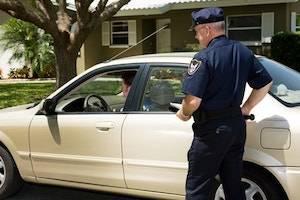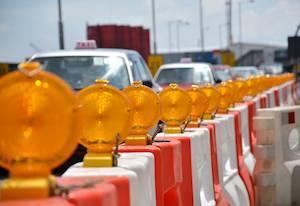Recent Blog Posts
What are Laws for Drug Possession in Illinois?

Here in the state of Illinois, possession of illegal drugs can come with serious legal ramifications. While medical marijuana is legal, recreational use and possession of marijuana are not. While possession of cannabis charges are serious, getting caught with even a small amount of cocaine, methamphetamine, or heroin can be life-changing if you are convicted.
If you are charged with a drug crime, it is important to understand the potential consequences and seek experienced legal assistance as soon as possible.
Drug Charges in Illinois
According to Illinois state law, the possible legal penalties of drug crimes depend on the type of substance and the amount seized by law enforcement.
If you are apprehended with less than 10 grams of marijuana, you may be charged with a civil offense, with a fine of up to $200. Possession of 10 to 30 grams is a misdemeanor for a first offense with up to a year in jail and fines of $2,500. Anything more than 30 grams becomes a felony, with mandatory minimum sentencing for a conviction and fines up to $25,000.
What to Do During and After a DUI Arrest in Illinois

Here in the state of Illinois, law enforcement is constantly on the lookout for drunk drivers. According to the Illinois Secretary of State’s office, more than 27,000 people were arrested on DUI charges in 2017 alone. A DUI conviction can come with serious legal ramifications and should not be taken lightly.
Once you have been pulled over by a police officer, it is important to understand how your actions can impact your case. In the event of an arrest, contact an experienced DUI lawyer as soon as possible.
Illinois DUI Stops
If you are driving, and you see a law enforcement officer turn their lights on behind you, it is important to follow basic safety procedures. Do not stop in the middle of the road, simply slow your vehicle and find a safe place to pull over. Do not pull over on a bridge, next to a guardrail, or on a sharp curve. Once you have come to a complete stop in a safe location, it is important to remain calm.
What to Do if You Are Charged with Shoplifting

Every year, retailers throughout the United States lose billions of dollars due to shoplifting. Because of this, store security and law enforcement are increasingly on the lookout for shoplifters. According to the National Association for Shoplifting Prevention (NASP), approximately 1 in 11 Americans will commit retail theft at some point in their lifetime. If you have been charged with shoplifting, you need to fully understand the implications of a conviction and seek skilled legal representation as soon as possible.
Retail Theft Charges in Illinois
Here in the state of Illinois, shoplifting is defined as the act of taking, possessing, or carrying away a retail item without paying the marked retail value. It is important to note, retail theft is not limited to the act of physically stealing an item. Illinois law states a person can be charged with shoplifting if they pretend to own an item, utilize an anti-theft detection device, or alter the price tag of a retail good. The ramifications of a shoplifting conviction can be severe.
What are the Penalties for Underage Drinking Charges in Illinois?

Underage drinking is on the decline nationwide, with only an average of 14 percent of American 12th-grade students stating they binge drink alcohol on a regular basis. Still, thousands of American teenagers take part in underage drinking, which is dangerous for a number of reasons. This includes driving under the influence of alcohol.
It is also important to understand an illegal consumption charge can come with serious legal consequences. If your son or daughter is charged with underage drinking, it is time to secure skilled legal assistance.
Underage Drinking Dangers
Outside of the serious legal trouble that can come with underage drinking, consuming alcohol as a minor is a legitimate health threat. According to the Centers for Disease Control and Prevention (CDC), underage drinking is responsible for an average of 4,300 deaths in the United States every year. Many of these deaths are due to alcohol poisoning, but a large percentage are due to drinking and driving. Drunk drivers under the age of 21 are more likely than any other age group to be involved in an auto accident. Other common health symptoms related to underage drinking include memory problems, alterations in brain development, and potential abuse of other drugs.
Types of Reckless Driving in Illinois

According to the Illinois Department of Transportation, nearly 1,100 people were killed in motor vehicle collisions statewide in 2017 while thousands of others suffered serious injuries. Due to the high number of traffic fatalities, Illinois law enforcement has increased surveillance and traffic tickets for reckless drivers. Reckless driving is defined as the act of overtly disregarding traffic laws and procedures while endangering oneself and others. If you have been cited for reckless driving charges, it is important to understand the potential consequences of a conviction.
Common Forms of Reckless Driving
A reckless driving charge can result in serious consequences. Listed below are some of the most common violations that constitute reckless driving charges.
Excessive Speeding
According to the National Highway Traffic Safety Administration (NHTSA), speeding plays a role in approximately 26 percent of annual fatal collisions throughout the United States. In 2017 alone, speeding took 9,717 American lives. Because of this, driving at excessive speeds, such as 20 mph over the legal limit, is considered reckless driving.
How a CDL Traffic Violation Can Impact Your Career

On an annual basis, thousands of commercial trucking accidents result in fatalities. In 2017, more than 4,000 people died in these crashes across the country. Due to the high number of truck accidents that involve severe injury, law enforcement takes traffic violations by truck drivers seriously, whether it occurs in their work or personal vehicle.
If you have been charged with a commercial drivers license (CDL) violation, you could face license revocation that can lead to loss of employment, in addition to heavy fines. In this situation, you need a skilled CDL traffic ticket attorney.
Common CDL Violations
A CDL traffic violation can come with serious complications for you and your employer. If you have been charged with a traffic violation outside of Illinois, state law requires you to report the violation. Below are some of the most common CDL tickets.
What is Aggravated Speeding in Illinois?

Here in the state of Illinois, traffic violations are taken seriously. One of the most harshly punished traffic offenses is an aggravated speeding ticket. Aggravated speeding is defined as driving 26 mph or more over the posted speed limit. If convicted, an aggravated speeding charge can lead to the loss of driving privileges, substantial fines, and potential jail time. If you have been charged with aggravated speeding, contact an experienced criminal defense lawyer immediately.
Aggravated Speeding Ticket Fine and Punishment
According to Illinois law, aggravated speeding constitutes a Class B or Class A misdemeanor, depending on the speed at which the driver was traveling when pulled over. If the driver was traveling between 26 and 34 miles per hour over the speed limit, they will likely be charged with a Class B misdemeanor. Driving 35 mph or more over the speed limit constitutes a Class A offense. Class B misdemeanors carry a maximum jail sentence of six months and potential fines up to $1,500. If your speeding constitutes a Class A misdemeanor, you could face up to one year in prison and $1,500 in fines.
The Impact of a DUI Test Refusal in Illinois

Here in the state of Illinois, drunk driving accidents make up 30 percent of all statewide motor vehicle crash fatalities. Because of the large number of drunk driving deaths, law enforcement officials have cracked down on DUIs in Illinois, making over 27,000 DUI arrests in 2017 alone. If you have been pulled over by a police officer, and have been drinking, it is easy to feel as if you have no options other than to submit to blood alcohol concentration (BAC) testing, but it is important to note that it is not a crime to refuse a DUI test.
BAC Test Refusal
As a driver in the state of Illinois, you imply consent to be DUI tested when you receive your driver’s license. That means refusing a BAC test is not a criminal offense, but rather an administrative offense.
While there are a number of options for law enforcement to test your BAC after pulling you over, including urine or blood drawings, the most common testing method is through the use of a breathalyzer. This is a device used to test the BAC of a person under suspicion of DUI, with the use of a breath sample.
Fighting a Work Zone Speeding Ticket in Illinois

Throughout the state of Illinois, traffic violations are taken seriously by law enforcement, especially those that occur within construction zones. According to the Illinois Department of Transportation (IDOT), around 4,500 crashes occur in work zones around the state every year. Due to the high number of accidents and the danger both drivers and workers face, construction zone speeding tickets can come with severe penalties. If you receive a ticket for a work zone traffic violation, you should contact a skilled traffic ticket attorney for help.
Work Zone Speed Limit Violations
Due to the increased injury risks associated with speeding in a construction zone, ticket fines are high, even for a first offense. For a conviction, a first-time offender will receive a minimum fine of $375, while any subsequent offenses result in a fine no less than $1,000. If two offenses occur within a two-year period, you could face driver’s license suspension up to 90 days. For drivers who hold a commercial driver’s license (CDL), a work zone violation may result in immediate license suspension, expensive fines, and potential loss of employment. In cases in which speeding is documented through the use of photo speed enforcement technology, standard fines and punishments still apply.
Seeking Legal Assistance After a DUI Arrest

Like every state, in Illinois, driving under the influence (DUI) can result in long-lasting consequences. From driver’s license suspension to revocation, and even potential jail time, there is no overstating the seriousness of a DUI charge and conviction. If you have been charged with DUI, finding an experienced criminal defense attorney can help you maintain your essential driving privileges.
DUI Penalties in Illinois
When considering the possible outcomes of a DUI conviction, it is important to understand the legal ramifications can vary, especially if there is a minor under 16 in the car or if you have a BAC of .16 or higher. The most likely outcome is license suspension.
License suspensions can last for various amounts of time, depending on the severity of the crime and the number of previous arrests. For instance, a first-time DUI offender is likely to face a sixth-month suspension for a failed chemical test, or 12 months for refusing a test. A second or subsequent conviction within five years is a one-year suspension, which bumps to three years for test refusal.








